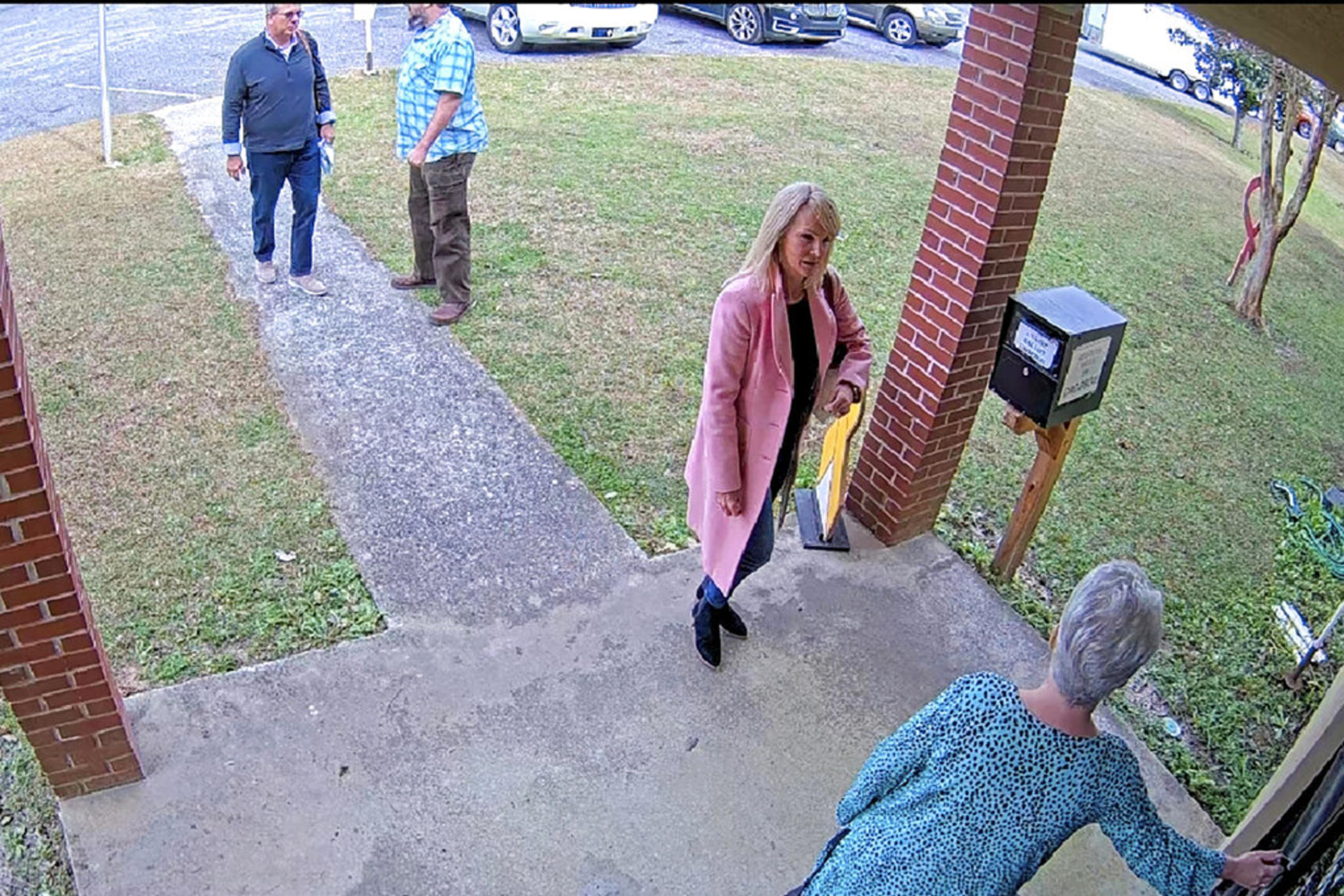Section Branding
Header Content
Voting experts warn of 'serious threats' for 2024 from election equipment software breaches
Primary Content
An effort to access voting system software in several states and provide it to allies of former President Donald Trump as they sought to overturn the results of the 2020 election has raised "serious threats" ahead of next year's presidential contest, according to a group of experts who urged federal agencies to investigate.
The letter sent by nearly two dozen computer scientists, election security experts and voter advocacy organizations asks for a federal probe and a risk assessment of voting machines used throughout the country, saying the software breaches have "urgent implications for the 2024 election and beyond." The breaches affected voting equipment made by two companies that together count over 70% of the votes cast across the country, according to the letter.
"The multistate effort to unlawfully obtain copies of voting system software poses serious threats to election security and national security and constitutes a potential criminal conspiracy of enormous consequences," the group wrote in a letter sent to U.S. Attorney General Merrick Garland, special counsel Jack Smith, FBI Director Christopher Wray and Jen Easterly, director of the U.S. Cybersecurity and Infrastructure Security Agency. "We must protect our most sacred tenet of democracy — the security of our vote."
The letter, sent to the agencies late Monday, was organized by the left-leaning group Free Speech for People, a nonprofit advocacy group focused on election and campaign finance reforms. The group also has filed challenges in a handful of states seeking to ban Trump from the ballot in 2024 under the insurrection clause of the 14th Amendment.
The FBI declined to comment on the letter Tuesday while the other offices did not provide an immediate response.
Trump's loss in the 2020 election helped fuel unfounded conspiracy theories around voting machines that in turn led to threats against election workers, a push in many conservative counties to hand-count ballots and defamation lawsuits by companies that make the equipment. Authorities in three states — Colorado, Georgia and Michigan — have charged people in connection with breaches at local election offices, but there has been no public indication of a federal probe.
The letter sent this week outlines what is known publicly about the efforts to access those voting systems, which began in the weeks after the Nov. 3, 2020, presidential election won by Democrat Joe Biden. It cites a Dec. 18, 2020, meeting in the Oval Office in which Trump allies, including lawyers Sidney Powell and Rudy Giuliani, discussed a desire to access voting machines in presidential swing states Trump lost, according to congressional testimony. It also details subsequent efforts to secure that access.
Powell, Giuliani and Trump were among 19 people charged this summer in Fulton County, Georgia, where state prosecutors have alleged they were part of a conspiracy to overturn Trump's loss in the state. That included the unauthorized breach of voting systems in rural Coffee County, Georgia.
Powell has since pleaded guilty to reduced charges and has agreed to testify against her co-defendants. Prosecutors alleged she had conspired with others to access election equipment without authorization in the county and hired a computer forensics firm to copy software and data from voting machines and computers.
The letter to federal officials cites various documents and news reports to highlight potential connections between Powell and three people charged in a similar effort in Michigan, where state prosecutors allege there was unauthorized access to ballot tabulators in three counties. Powell has not been charged in the Michigan case.
In addition to Georgia and Michigan, the letter mentions voting system breaches or attempts to access voting-related systems in Pennsylvania, Ohio, Nevada and Colorado as well as various individuals involved in the efforts. It stresses that possession of voting system software could enable people with ill intent to practice how to meddle in the 2024 election, allowing them to identify vulnerabilities and test potential attacks.
"And they could use their knowledge of the software to fabricate evidence of stolen votes, either for disinformation or to challenge election results," the letter said.
In Colorado, former Mesa County clerk Tina Peters has pleaded not guilty to state charges alleging she was part of a "deceptive scheme" to provide unauthorized access to the county's voting systems during a May 2021 breach that eventually resulted in a copy of the voting system hard drive being posted online.
Peters, whose trial is scheduled for next year, has said she had the authority to investigate concerns that the voting equipment had been manipulated. She has appeared at several events with MyPillow CEO Mike Lindell, a Trump ally who has promoted election conspiracy theories.
Federal authorities have been involved in the Colorado case, but the extent of any investigation is unknown. In September 2022, Lindell said he received a subpoena from a federal grand jury investigating the breach in Colorado and was ordered to hand over his cellphone to FBI agents.
In the Michigan case, a special prosecutor said local clerks who turned over the ballot tabulators and others who analyzed the equipment "were deceived by some of the charged defendants." They have not been charged.
Among the 22 people who signed the letter to the federal agencies was Douglas W. Jones, a computer scientist who said the effects of the various breaches were not limited to the local election offices where they occurred because the voting system software involved is used by many offices across the country. The letter says those involved accessed equipment made by two of the leading manufacturers, Dominion Voting Systems and Election Systems & Software.
"In 2024, no matter which way the election goes, election deniers on one side or the other could easily grasp on the breaches following the 2020 election and suggest that those breaches allowed the 2024 results to be cooked," he said.
Election technology expert Kevin Skoglund, who also signed the letter, said a federal probe was necessary because many of those involved have not been investigated or been asked to give up their copies of the election software.
"Every software copy that is reclaimed reduces the risks of further distribution, disinformation and harm to the security of future elections," Skoglund said. "There should be consequences for widely sharing parts of our national critical infrastructure or others will be encouraged to repeat these schemes."


